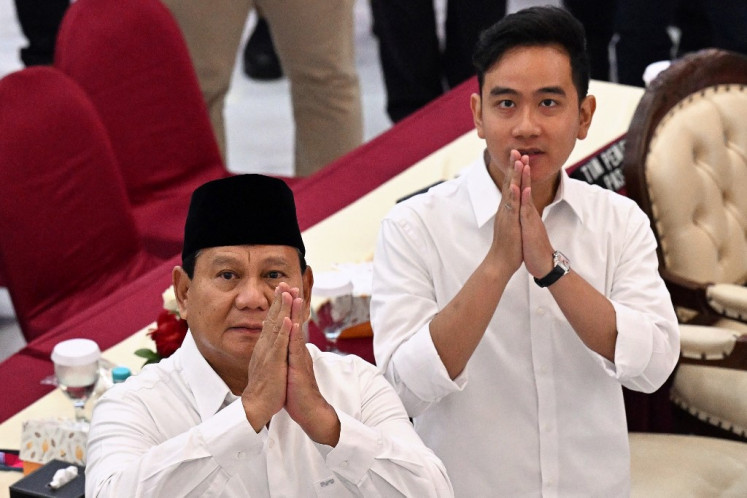Govt claims MP3EI progress, financing remains a key issue
While the government maintains that it has been working on some projects under the Master Plan for the Acceleration and Expansion of Indonesian Economic Development (MP3EI), experts say that financing will remain a key issue for future implementation
Change Size

W
hile the government maintains that it has been working on some projects under the Master Plan for the Acceleration and Expansion of Indonesian Economic Development (MP3EI), experts say that financing will
remain a key issue for future implementation.
According to the latest data from the MP3EI's committee (KP3EI), the government launched 197 infrastructure projects by the end of June or around 20 percent of the total 1,048 infrastructure projects committed to between 2011 and 2025.
The data also revealed that in the real sector, the number of projects launched thus far had reached 174 or almost half of the total 350 projects in the same period.
National Development Planning Board (Bappenas) head Armida Alisjahbana attributed the progress to the 'high involvement' of state-owned enterprises (SOEs) and the private sector in those projects.
'Financial contributions from SOEs have exceeded financing provided by the APBN [state budget] in terms of infrastructure. We are also seeing more involvement from BUMD [provincially-owned enterprises] and the private sector,' she said on Wednesday.
The SOEs, according to the data, accounted for 38 percent of the outstanding infrastructure financing with Rp 412.35 trillion (US$35 billion) as of June. The remainder of the financing was made up by the state budget with 32.1 percent, joint financing with 22.7 percent and private sector with 7.2 percent.
The joint financing figure included funds provided by various sources under the public private partnership (PPP) scheme, Armida said.
In the real sector, private firms topped the financing amount with almost 67 percent of the total Rp 441.18 trillion. Joint financing came in second, followed by contributions from SOEs and the state budget.
Officially launched in 2011 by the Susilo Bambang Yudhoyono's administration, the MP3EI is seen as an ambitious plan. It consists of hundreds of projects with a total value of more than Rp 800 trillion. It is expected to help Indonesia achieve 'developed nation' status by 2025.
Armida was optimistic that the planned projects would proceed, even though there had been talks that the MP3EI would be scrapped by the Joko 'Jokowi' Widodo-Jusuf Kalla administration.
'Strategic projects, such as those related to plantation and processing industries, will not be affected [by the changing administration],' she said.
Despite the government's positive view, some experts that attended the seminar said that financing issues continued to cloud the mega project.
Raden Pardede, vice chairman of the National Economic Committee (KEN), demanded the government review the state and regional budgets considering that many of the current uses were not properly allocated.
'Many of the funds are currently channeled to mandatory spending, such as civil servants' salaries,' he said.
He also proposed that fuel subsidies be reduced to allow more funds to be channeled into infrastructure projects.
Meanwhile, Standard Chartered Bank Indonesia managing director Fauzi Ichsan said that the government must immediately find US dollar-denominated funding sources that could not be provided by local lenders.
'A majority of loans provided now are in rupiah, while infrastructure or construction firms need dollars to import raw materials and capital goods,' he said.
The urgency to look for other funding sources was also highlighted by Bank Mandiri president director Budi Gunadi Sadikin, who said that tight liquidity prevented higher loans disbursement to infrastructure projects.









